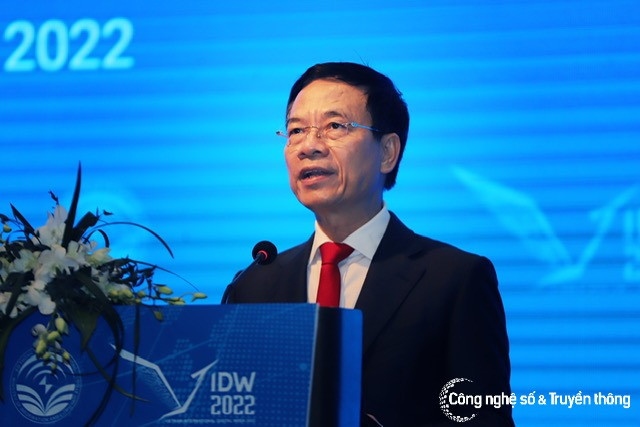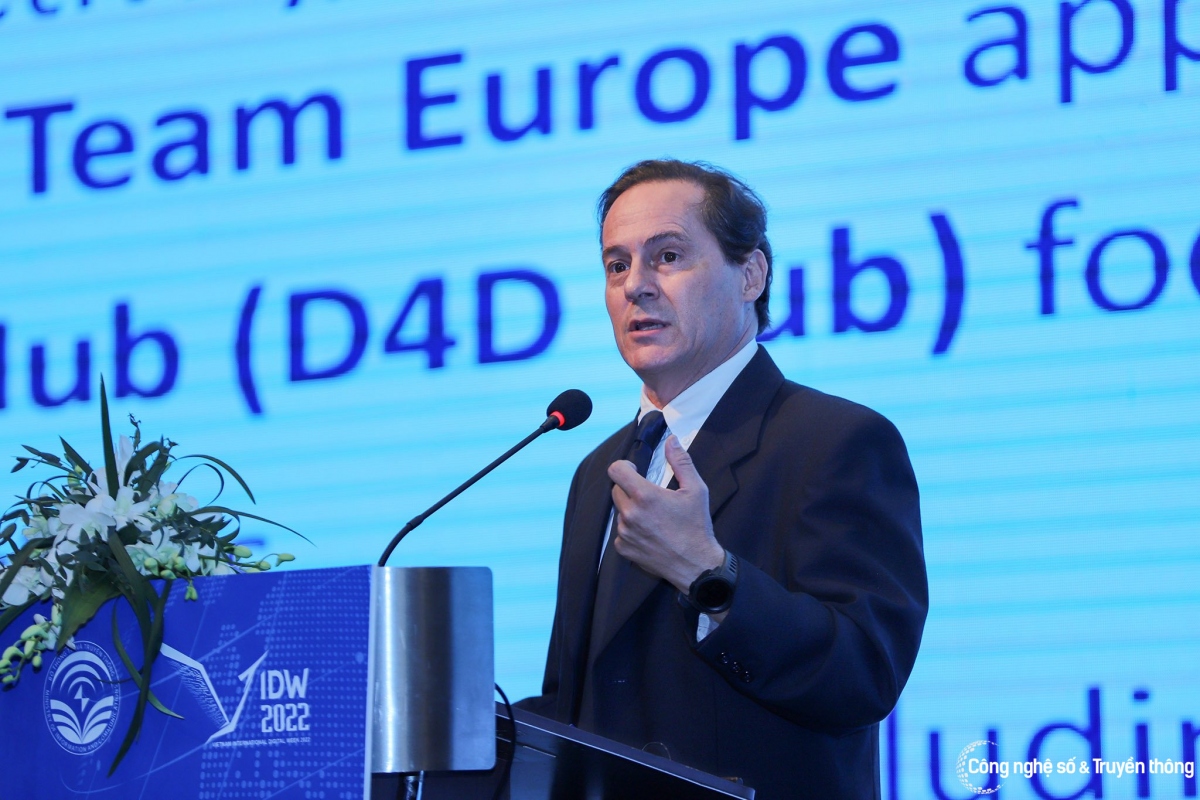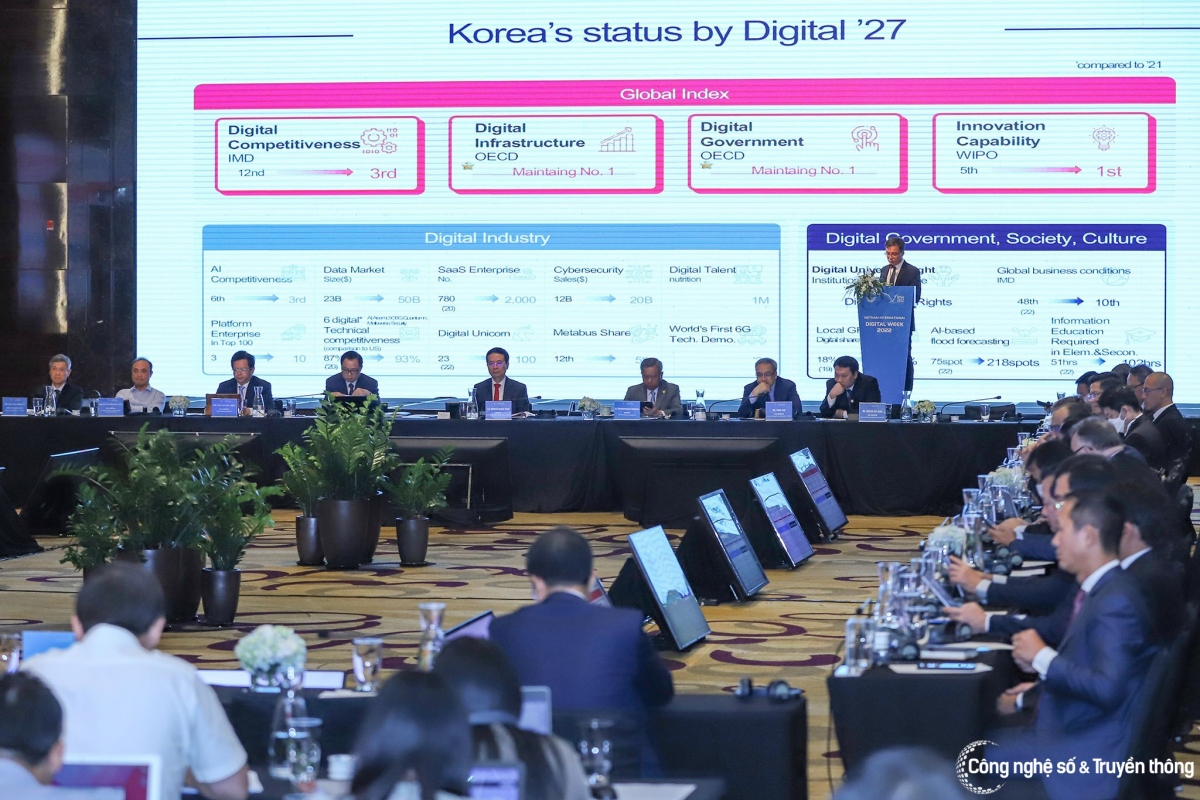Foreign policymakers share experiences in digital transformation in Hanoi
VOV.VN - Vietnam International Digital Week (VIDW 2022) kicked off on October 11 in Hanoi, attracting over 350 delegates from ministries, associations, organisations, and businesses in charge of digital technology of ASEAN states and dialogue countries, as well as representatives of diplomatic missions and international organisations in Vietnam.

Addressing VIDW2022, which is running with the theme of Global Partnership for Suitable Digital Future, Vietnamese Minister of Information and Communication Nguyen Manh Hung stressed that changes to the digital world are significant, but they also pose a major challenge for humanity.
Digital transformation will also be the main theme of the first International Digital Week held in Vietnam, and this with this initiative will be maintained to becomes an annual activity of ASEAN countries, he said.
High on the agenda will be discussions relating to digital transformation, digital institutions, digital infrastructure, digital technology, digital platforms, digital applications, digital human resources, digital safety and digital co-operation, he added.
According to the Minister, digital co-operation among ASEAN states will contribute to creating a digital bloc and achieving the ‘One ASEAN’ goal, with digital transformation and digital co-operation being the best solutions. Minister Hung noted that Vietnam wishes to enter into digital co-operation partnerships with other ASEAN countries and many other nations globally.
“ASEAN countries have since 2019 held their annual 5G conference, and ASEAN is committed to keeping pace with the world in terms of new technology,” stressed Minister Hung.
During the first plenary session held after the opening ceremony, policymakers shared various strategies, visions, orientations, and roadmaps for digital development, as well as experiences in digital economy management and digital partnership building.
Lao Minister of Technology and Communications Boviengkham Vongdara said that technology represents one of the key long-term co-operation areas between Laos and Vietnam, and Laos wishes to learn from Vietnamese experience in carrying out digital transformation over recent years. He also revealed that Vientiane is scheduled to host the Laos National Digital Week in December as a means of promoting the country’s digital transformation.

Meanwhile, Jesus Lavina, representative of the EU delegation to Vietnam, said that the European bloc places high priority on green and digital transformation, with digital technology proving a key role in the COVID-19 fight. Many new jobs have therefore been created thanks to the development of digital technology.
The EU has introduced a joint strategy called 2030 Digital Compass, a policy framework through which the bloc will agree on a number of goals and provide tools and a roadmap to achieve them. It is therefore keen to develop a pool of 20 million ICT professionals, provide 100% of health services online, and move to digitalise 80% of its economy.
Sharing its ICT development strategy, Lee Byong-moog, a representative of the Ministry of Science, ICT and Future Planning of the Republic of Korea (RoK), said the RoK is promoting the building of hyper-connected networks and in in the process of researching 6G with 1GB speed. He said the RoK’s investment resources for ICT currently account for 12.9% of its GDP, with ICT exports making up 34% of its GDP and R&D expenditures representing 58%.

Talking about the Vietnamese vision on a digital nation, Deputy Minister of Information and Communication Nguyen Huy Dung noted that the country has adopted a national strategy on the digital economy and digital society development as part of efforts to create growth through digital technology. Digital development has therefore been identified as a key part of Vietnamese efforts to achieve its goals of becoming a developed country and creating happier citizens.
He therefore proposed that countries share their experiences and increase co-operation, especially in the development of legal frameworks, e-transaction laws, taxes, cross-border transactions, and sandbox frameworks for new services to support digital transformation.
During the event there will be a number of conferences and forums to be held to discuss digital transformation, development of the digital economy and digital society, development of 5G networks, co-operation in data protection, prevention of fake news, and the enhancement of digital skills.

